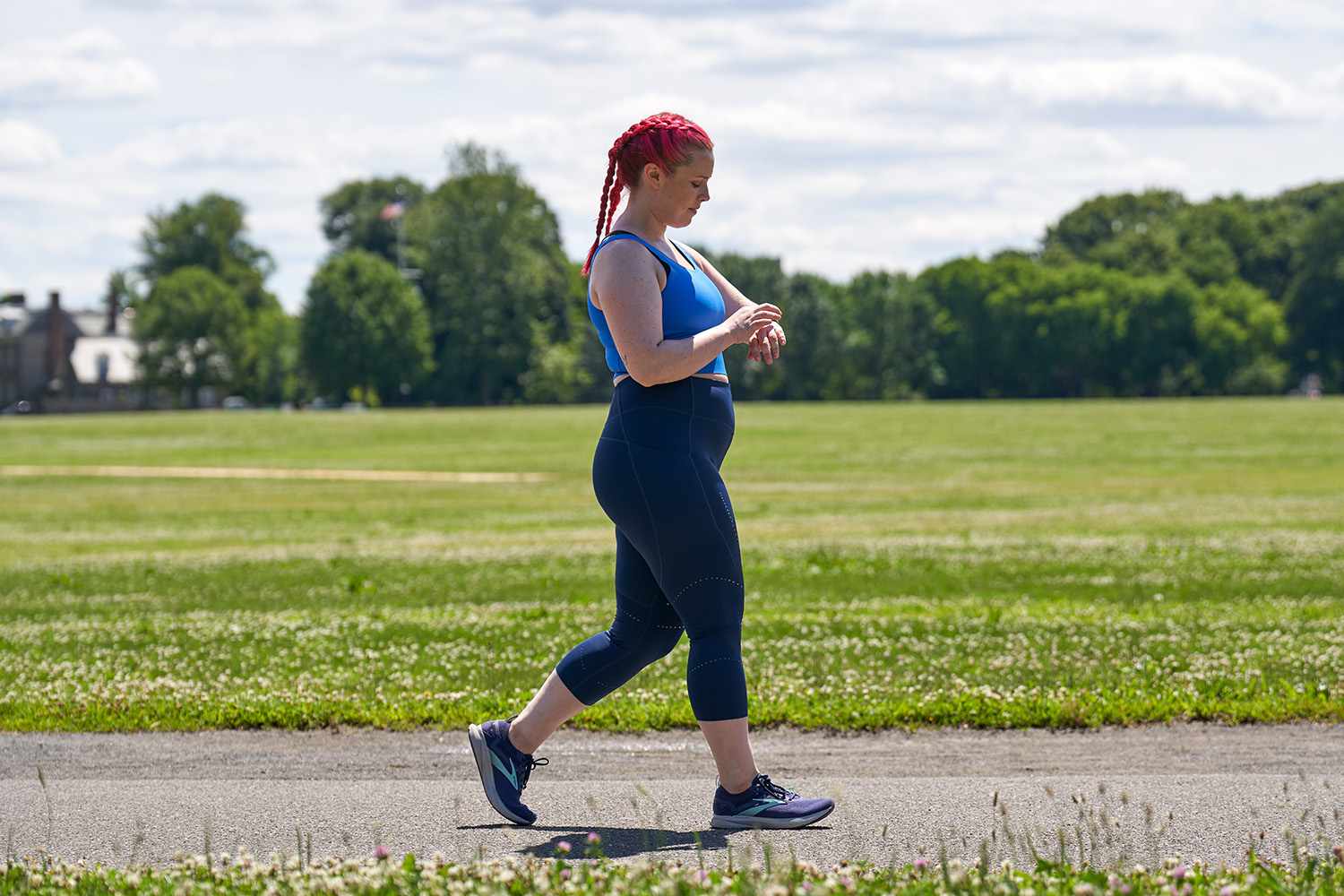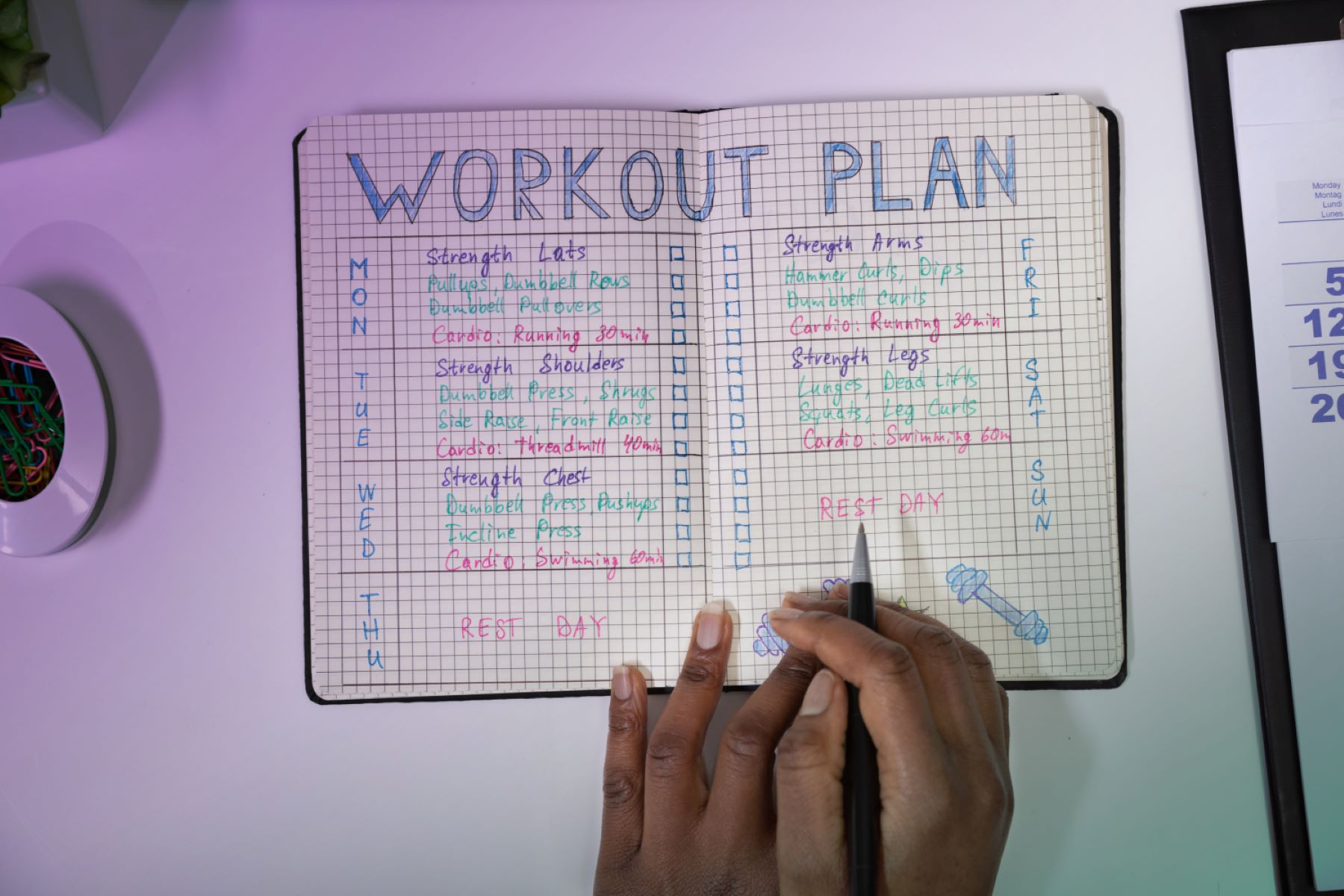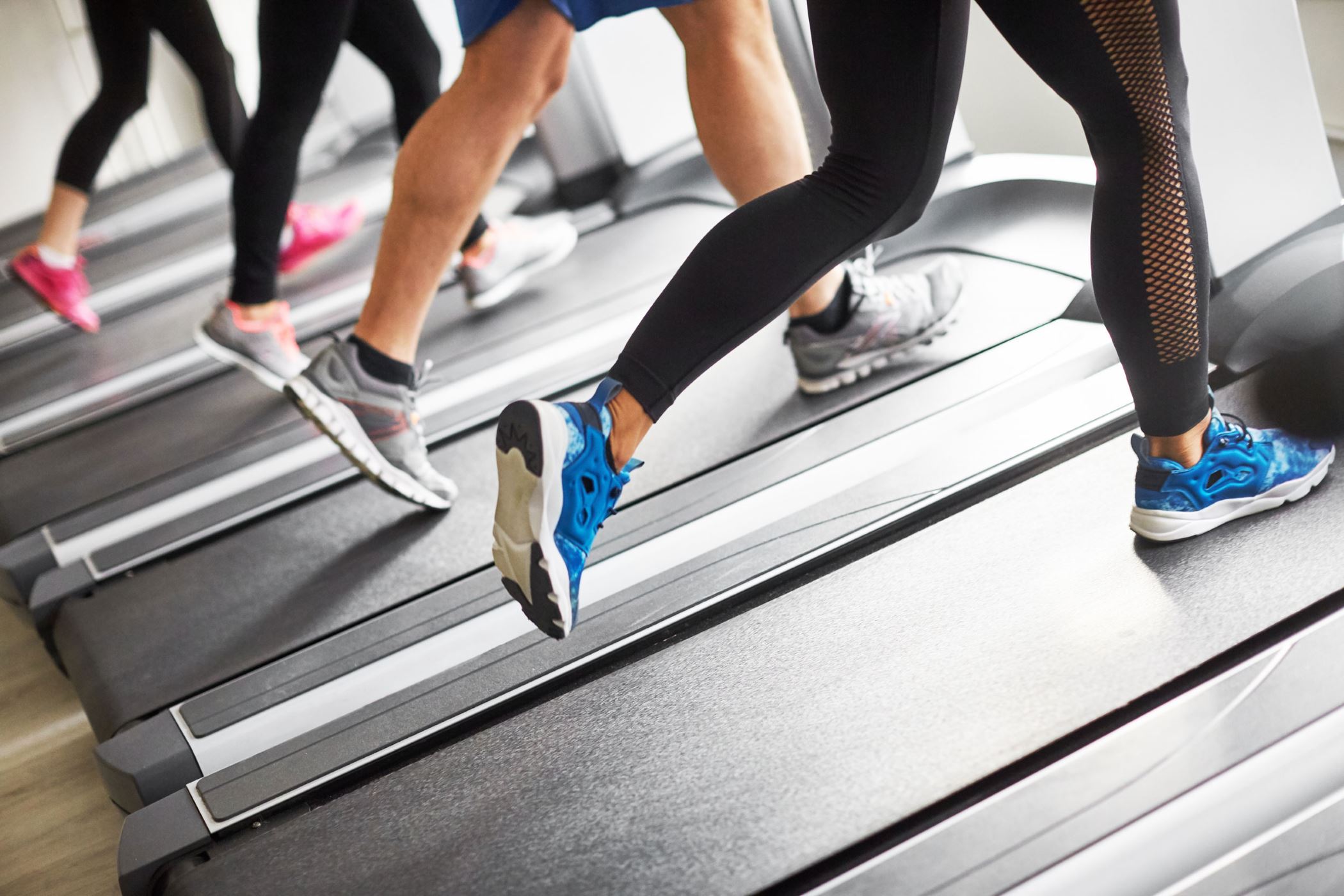Home>Misc>Featured>When Is The Best Time To Workout To Lose Weight


Featured
When Is The Best Time To Workout To Lose Weight
Modified: August 19, 2023
Discover the featured article that reveals the best time to workout for effective weight loss. Maximize your results with strategic exercise timing.
Introduction
When it comes to weight loss, exercise plays a vital role in achieving your goals. But have you ever wondered when is the best time to workout for maximum results? The timing of your workouts can actually make a difference in your weight loss journey. Whether you’re a morning person, a night owl, or somewhere in between, finding the perfect time for your workouts can optimize your efforts and help you shed those extra pounds more effectively.
There has been ongoing debate about whether morning, afternoon, or evening workouts are most beneficial for weight loss. Some experts argue that working out in the morning is the most effective way to kickstart your metabolism and burn more calories throughout the day. On the other hand, proponents of afternoon or evening workouts claim that exercising later in the day allows your body to be at its peak performance, resulting in better strength and endurance during your workout.
While the best time to workout ultimately depends on individual preferences and schedules, there are several factors that can help you determine which time may be most suitable for you. These factors include your body’s natural circadian rhythm, energy levels throughout the day, and the availability of time and resources to exercise. Let’s delve deeper into the benefits and considerations of morning, afternoon, and evening workouts to help you make an informed decision for your weight loss journey.
Morning Workouts
Many fitness enthusiasts swear by the benefits of starting their day with a morning workout. There are several advantages to exercising in the morning that can contribute to successful weight loss.
Firstly, working out in the morning helps to kickstart your metabolism for the day. When you engage in physical activity in the morning, your body continues to burn calories at an elevated rate even after your workout is complete. This is known as the afterburn effect or excess post-exercise oxygen consumption (EPOC). By exercising in the morning, you can take advantage of this extended calorie burn throughout the day, aiding in weight loss efforts.
Additionally, morning workouts can help boost your energy levels and mental focus for the day. Engaging in physical activity stimulates the release of endorphins, which are known as “feel-good” hormones. This can leave you feeling more energized and positive, setting a productive tone for the rest of the day.
Furthermore, exercising in the morning can help you establish a consistent workout routine. By prioritizing your workouts early in the day, you are less likely to encounter scheduling conflicts or be tempted by distractions that may arise later in the day. Morning workouts also allow you to start your day on a positive note, giving you a sense of accomplishment and motivation to make healthy choices throughout the day.
However, it’s important to consider your personal preferences and physical limitations when deciding if morning workouts are right for you. Some individuals may find it challenging to wake up early and engage in rigorous exercise, while others may experience decreased performance and increased risk of injury due to stiff muscles and joints from overnight rest. If you’re not a morning person or find it difficult to exercise on an empty stomach, adapting your routine to a later time may be a better fit for your body and lifestyle.
Evening Workouts
For those who struggle to find the motivation to exercise in the morning or have busy schedules, evening workouts can be a great option. Working out in the evening offers its own set of benefits that can contribute to weight loss.
One advantage of evening workouts is that your body is already warmed up and flexible from the day’s activities. This can help reduce the risk of injury and allow you to perform exercises with proper form and technique. Additionally, your muscles tend to be more relaxed in the evening, which can enable you to achieve a greater range of motion during your workout.
Another benefit of evening workouts is that they can serve as a stress-reliever after a long day. Exercise is known to release endorphins, which can help reduce stress, anxiety, and improve overall mood. Engaging in physical activity in the evening can help you unwind, relax, and improve the quality of your sleep, aiding in weight loss efforts.
In addition, evening workouts give you the opportunity to work off the day’s accumulated stress and calories. By exercising later in the day, you can burn calories from meals consumed throughout the day, reducing the chances of them being stored as fat. This calorie expenditure can also create a calorie deficit, which is essential for weight loss.
However, there are a few considerations to keep in mind when opting for evening workouts. Some individuals may find it challenging to exercise after a long and tiring day, resulting in lower motivation and intensity during their workouts. Additionally, exercising too close to bedtime can increase alertness and make it harder to fall asleep. It’s important to listen to your body and ensure you give yourself enough time to wind down before bed to optimize your sleep quality.
Ultimately, the decision to work out in the evening depends on your individual preferences, energy levels, and schedule. If you find that your energy levels are highest in the evening and you can maintain consistency with your workouts, then evening exercise may be the ideal choice for you.
Afternoon Workouts
While morning and evening workouts are often the most popular choices, don’t overlook the benefits of afternoon workouts. Exercising in the afternoon can offer unique advantages that can support your weight loss journey.
One advantage of afternoon workouts is that your body has had time to wake up fully and become more alert. This can result in improved focus and mental clarity, allowing you to give your workout your full attention and effort. Additionally, your body temperature tends to be at its highest in the afternoon, which can enhance your overall physical performance and increase the efficiency of your workout.
Afternoon workouts can also provide a much-needed energy boost during the midday slump. Many people experience a drop in energy levels and productivity in the afternoon, making it the perfect time to squeeze in a workout. Engaging in physical activity can help combat fatigue, stimulate circulation, and increase oxygen flow to the brain, leaving you feeling more energized and revitalized for the rest of your day.
Furthermore, afternoon workouts can help regulate your appetite and control cravings. By exercising in the afternoon, you’re less likely to reach for unhealthy snacks or overeat later in the day. This can be particularly beneficial for weight loss efforts as it helps to create a calorie deficit and maintain a balanced and nutritious diet.
However, one potential challenge of afternoon workouts is finding the time and availability amidst work or other commitments. It’s important to plan your schedule in advance and prioritize your exercise routine. In some cases, breaking your workout into shorter, more manageable sessions throughout the day may be a feasible solution.
Ultimately, the best time for an afternoon workout will depend on your personal schedule and preferences. Experiment with different time slots to find the one that works best for you in terms of energy levels, convenience, and adherence to your routine.
Factors to Consider
When deciding on the best time to work out for weight loss, it’s important to consider several factors that are unique to your lifestyle and preferences. Here are some key factors to take into account:
- Circadian Rhythm: Your body has its own internal clock, known as the circadian rhythm, which influences your physiological processes, including energy levels and sleep patterns. Some individuals naturally have more energy and feel more alert in the morning, while others may experience peak energy levels in the afternoon or evening. Consider your own circadian rhythm and choose a workout time that aligns with your natural energy patterns.
- Personal Energy Levels: Pay attention to how your energy levels fluctuate throughout the day. If you find that you have higher energy levels in the morning, you may benefit from a morning workout to kickstart your metabolism and seize the day. On the other hand, if you tend to experience an energy slump in the afternoon or evening, working out during these times can provide an energy boost and help you stay active.
- Schedule and Availability: Consider your daily schedule and the availability of time to exercise. If you have a busy morning routine or it’s difficult to find time to workout in the evening, opting for an afternoon workout may be more feasible. Choose a time that allows you to commit to your fitness routine consistently without compromising other important commitments.
- Personal Preference: Ultimately, it’s crucial to choose a workout time that you enjoy and can sustain in the long run. If you’re not a morning person but love the feeling of an energizing evening workout, prioritize what makes you excited to exercise. The more enjoyable your workouts are, the more motivated you’ll be to stick to them and achieve your weight loss goals.
- Nutrition and Digestion: Take into consideration your digestion process as well. Some individuals may prefer to exercise on an empty stomach in the morning, while others may need to eat a small snack for energy and stability during their workout. Understanding how your body responds to food and exercise can help you determine the best time to work out for optimal performance.
Remember, there is no one-size-fits-all answer to the best time to work out for weight loss. It’s a personal decision that should be based on your individual preferences, energy levels, and lifestyle. Experiment with different workout times to find what suits you best and allows you to be consistent in your fitness journey.
Conclusion
The best time to work out for weight loss ultimately depends on your individual circumstances and preferences. Morning, afternoon, and evening workouts each have their own unique benefits and considerations to take into account.
If you’re an early riser and have higher energy levels in the morning, working out early can help kickstart your metabolism, boost your energy for the day, and establish a consistent fitness routine. On the other hand, if you tend to have a midday energy slump or find it difficult to wake up early, afternoon workouts can provide an energy boost and help regulate your appetite. For those who have busy schedules or simply feel more energized in the evenings, working out later in the day can help you unwind, burn calories, and improve sleep quality.
It’s important to consider your personal factors such as your circadian rhythm, energy levels, schedule, and preferences when deciding on a workout time. Listen to your body, experiment with different times, and choose a time that allows you to commit to your fitness routine consistently.
No matter what time you choose to work out, consistency is key. Regular physical activity, combined with a balanced diet, is the foundation for successful weight loss. Find a time that works for you and make it a priority in your daily routine.
Remember, the best time to work out is the time that you can stick to and enjoy. Whether you’re a morning person, an evening enthusiast, or prefer a midday break, stay committed to your fitness goals and embrace the positive changes that exercise brings to your body and mind.









